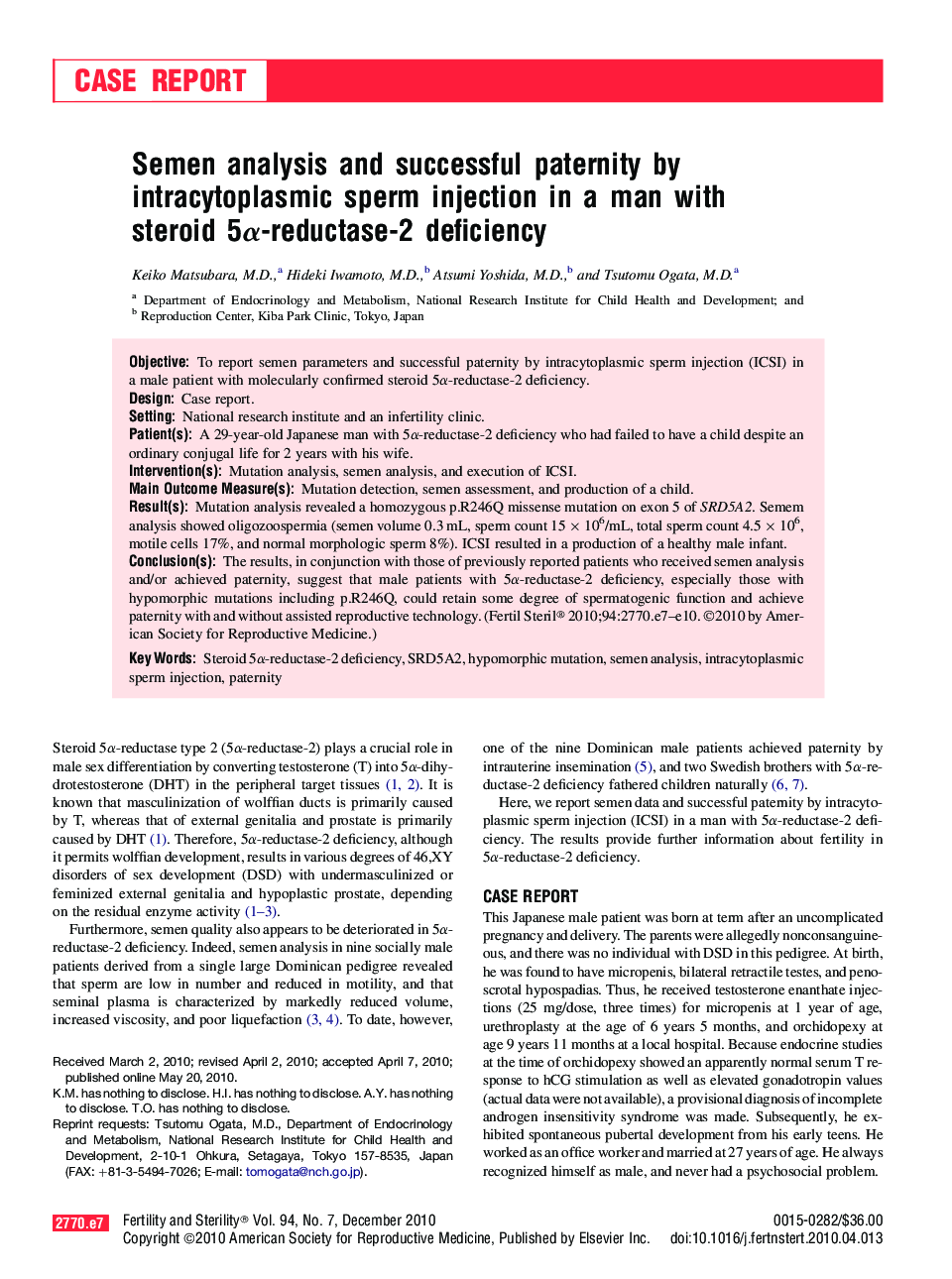| Article ID | Journal | Published Year | Pages | File Type |
|---|---|---|---|---|
| 6181332 | Fertility and Sterility | 2010 | 4 Pages |
ObjectiveTo report semen parameters and successful paternity by intracytoplasmic sperm injection (ICSI) in a male patient with molecularly confirmed steroid 5α-reductase-2 deficiency.DesignCase report.SettingNational research institute and an infertility clinic.Patient(s)A 29-year-old Japanese man with 5α-reductase-2 deficiency who had failed to have a child despite an ordinary conjugal life for 2 years with his wife.Intervention(s)Mutation analysis, semen analysis, and execution of ICSI.Main Outcome Measure(s)Mutation detection, semen assessment, and production of a child.Result(s)Mutation analysis revealed a homozygous p.R246Q missense mutation on exon 5 of SRD5A2. Semem analysis showed oligozoospermia (semen volume 0.3 mL, sperm count 15 à 106/mL, total sperm count 4.5 à 106, motile cells 17%, and normal morphologic sperm 8%). ICSI resulted in a production of a healthy male infant.Conclusion(s)The results, in conjunction with those of previously reported patients who received semen analysis and/or achieved paternity, suggest that male patients with 5α-reductase-2 deficiency, especially those with hypomorphic mutations including p.R246Q, could retain some degree of spermatogenic function and achieve paternity with and without assisted reproductive technology.
